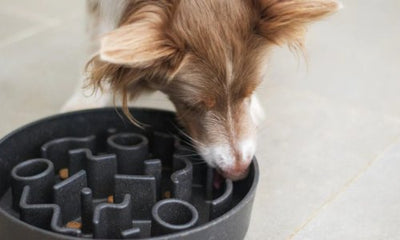Cats make wonderful pets. They are clean, affectionate, playful and provide great companionship. In comparison to dogs, they are relatively low maintenance as they don’t require daily walks or lots of space for exercise. However, like any pet, they require good quality care and you must be willing to spend time, money and energy on ensuring your cat is happy and healthy.
Purchasing
When you decide to bring a new cat into your family, it is important to be equipped with a basic knowledge of their needs. If you are in a position to do so, we highly recommend adopting a cat. Local shelters are passionate about matching the right people to the right cat, meaning they can provide advice on which breed of cat will be suitable for your lifestyle. Not only will you be gaining a new best friend, but giving a cat another chance at life can be a genuinely rewarding experience. To find out more about adopting, you can visit your local RSPCA. If adoption is not for you, we recommend purchasing a cat from a registered breeder.
Time and money
You should be willing to provide your cat with a safe and stimulating environment, and be prepared to offer plenty of human companionship. It is also important to do your calculations, and make sure you can afford the ongoing costs of keeping a cat, including any veterinary treatment it may need.
Veterinary care
When you purchase a cat, the first thing you should do is book them into your local vet for a general health checkup. Your vet will be able to advise you on any vaccinations, preventative healthcare, desexing and medications necessary for your feline friend. You should get your cat desexed as early as possible. This will not only improve their temperament but help prevent unwanted litters. It is also recommended to get your cat vaccinated against major feline diseases that can be sometimes fatal including Feline Enteritis, Feline Respiratory Disease, Chlamydophila, FIV and FeLV. Your vet will ensure your cat is microchipped as a form of identification, and provide advice on the best flea and worming preventative. If you notice any changes in your cat’s drinking, eating, urination or weight, you should check with your veterinarian immediately.
Water
Your cat will require a constant supply of fresh water, as well as a suitable water bowl or fountain for them to access the water. Your cat might like to play or clean themselves using the water dish, so we recommend a sturdy and stable bowl such as the Durapet Cat Bowl. Your cat should have access to fresh, clean water at all times.
Food
Cats are carnivores, meaning they thrive on animal protein and should be fed high-quality cat food with meat as the first ingredient. Super premium dry cat food such as Hill’s Science Diet, Royal Canin or Advance will provide a well balanced and complete diet for your cat or kitten. Each cat’s dietary requirements will vary depending on his or her age, size, breed and activity level. If you are unsure about which food to feed your cat, you should consult with your veterinarian. It is important to avoid cheaper low quality food that uses fillers such as corn and rice.
Exercise
Cats spend most of their life indoors, so it is important that you provide behavioural enrichment to avoid boredom. You might like to purchase a cat tree, cat tunnel or something similar for your cat to climb on. Additionally, you should provide them with a range of interactive toys to keep themselves entertained. Some great options include the Petstages Catnip Chaser, KONG Active Eight Track, Catit Senses Scratch Pad, or Nina Ottosson Puzzle and Play. It is also a good idea to purchase interactive toys that encourage bonding time together like the Trouble and Trix Cat Wand or Gigwi Jellyfish Wand. You should never assume that your cat is getting exercise on their own. Obesity in cats is a common problem and without fun and interactive games, they are susceptible to becoming overweight.
Grooming
You should regularly groom your cat to help keep their coat clean, reducing shedding and prevent hairballs. Long haired cats especially require daily grooming. Frequent brushing also provides a great opportunity to bond with your cat, and prevents your cat from shedding hair throughout the house. Many cats love being brushed, so if you start brushing them from a young age they will become used to it and enjoy the experience. You should purchase a good quality brush that is designed specifically for small pets such as the Pet One Cat Plastic Pin Brush or the Kazoo Cat Soft Slicker Brush. Most cats clean themselves well enough that you should not need to bath them.
Litter tray
Cats should have access to a clean litter tray at all times for them to go to the toilet. Cats use these instinctively, and they should be kept in a quiet place away from food and water. If you have more than one cat, they will need one each. You must be prepared to empty and clean the litter tray on a regular basis. Cats do not like smelly, messy litter boxes, so you must remove solid waste daily and do a complete empty and refill at least once a week. Cats often have preferences on what type of litter tray and litter they prefer. Some cats like to use a simple litter tray such as the Bono Fido Cat Tray, while others prefer a covered toilet like the Bono Fido Cat Toilet. Similarly with the litter tray, cats have preference on the substrate that the tray is filled with. There are a huge range of options on the market including recycled paper, clumping, crystals or pellets. Some popular choices include Breeders Choice, Catmate, Cherie and Trouble n Trix Crystals.
Housing
RSPCA NSW advocates keeping cats inside to keep them safe from outside dangers such as diseases, injury, other cats, people and traffic. If your cat does go outside, it is important to keep them inside overnight. This means you should ensure your house is safe, and has a clean and comfortable place for them to sleep. We recommend purchasing a soft and comfortable bed such as the Snooza Cocoon or Pet One Igloo. You may also like to line their bed with a soft, warm blanket for extra warmth. Be sure to wash the bedding often to prevent any flea or mite infestations.
Identification
It is a legal requirement in NSW to have your cat microchipped and registered. The ID tag and microchip help ensure your cat is returned if he or she becomes lost. Additionally, if your cat does venture outside you should fit them with a collar and a Pet ID tag with your contact details. When purchasing a collar, it is important to purchase a cat safety collar, as this comes with an elastic panel that allows your cat to break loose if he or she gets caught or tangled.
Parasites
It is important to protect your cat against common parasites such as worms, fleas and mites. The most common worms that affect cats in Australia are roundworm, hookworm and tapeworm. Cats should be wormed at 6, 8 and 12 weeks and every three months thereafter. Fleas can be prevented with a monthly topical solution. There are now several topical treatments on the market that protect cats from both fleas and worms such as Bravecto, Revolution and Advocate. The only product registered for tick prevention in cats is Frontline Spray, which can be used on kittens from two days of age. We recommend conducting tick searches daily.
Scratching
Scratching is a normal, instinctive cat behaviour. When cats scratch, the old outer nail is pulled off and the new sharp claw underneath is exposed. You should provide your cat with a sturdy scratching post, as well as some scratching pads to keep their claws sharp and to keep them entertained. We also recommend cutting your cat's nails at least once a month to reduce scratching of human skin and furniture.
Treats
Because what cat doesn’t love treats? While they should not make up more than 10% of your cat’s calorie intake, cat treats can provide a great reward for your feline friend when they have been on their best behaviour! Cat treats are not a complete diet, but when given in moderation can be a fun way to engage with your cat and provide them a nice little treat. You can purchase a range of delicious cat treats such as Temptations, Dine Creamy Treats or Trouble and Trix Milky Hearts.
Dental Care
You should establish a good dental maintenance routine for your cat from an early age to prevent dental diseases and keep their breath smelling fresh. According to the RSPCA, teeth and gum problems are prevalent in 8 out of 10 cats over the age of 3. Although it is highly unlikely that your cat will enjoy the experience, you should regularly check the health of your cat's mouth. You should look for clean, white teeth and pink gums without redness or swelling. If your cat becomes distressed when you open their mouth, you should take them to the vet for a dental health check. Daily brushing is the key to keeping your cat's teeth and gums healthy. You can purchase a Cat Dental Kit which comes with everything you need for regular brushing. In addition, you can help maintain your cats dental health with dental treats such as Greenies or dental solutions such as Tropiclean Dental Health Solution.
We hope this guide helps give you an understanding of the basic needs of a cat. All information in our care guides are based upon our own experience, and in any medical situations, you should always consult your vet.
Cat Owners Checklist
- Super premium quality cat food
- Food dish
- Water dish
- Parasite protection
- Cat treats
- Stimulating cat toys
- Grooming brush and comb
- Cat safety collar with ID tag
- Scratching post or scratching pad
- Litter box and litter
- Cat carrier
- Cat bed






